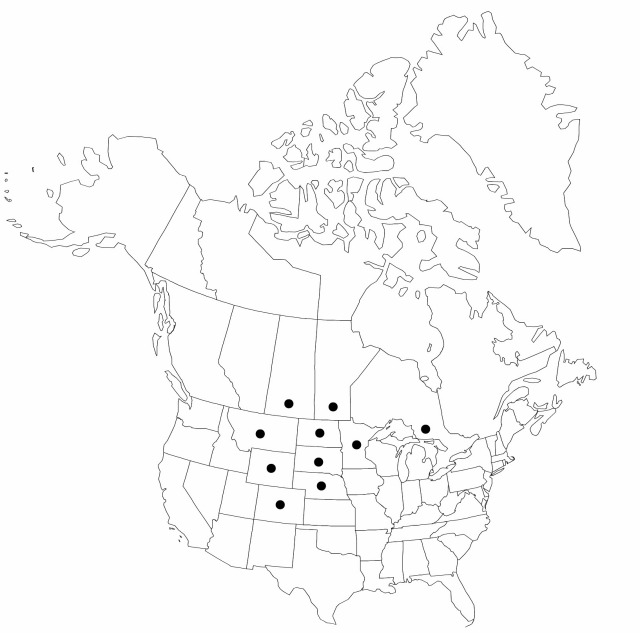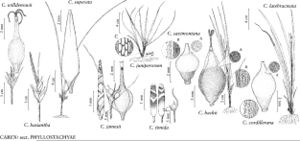Carex saximontana
Bull. Torrey Bot. Club 33: 439. 1906.
Culms 2.5–34 cm. Leaves: basal sheaths pale to medium brown; blades dark green to greenish glaucous, 1.9–4.9 mm wide, longer than stems, coriaceous, margins white-hyaline, smooth or scabrous. Lateral spikes 0–2, basal, on erect peduncles. Terminal spikes with staminate portion 2–3-flowered, 1.6–3.4 × 0.5–1.6 mm; pistillate portion 2–6-flowered. Pistillate scales green; proximal scales with margins 2.4–4.6 mm wide, essentially concealing perigynia, apex acute; distal scales lanceolate to ovate, apex awned to acute. Staminate scales green or white, ovate to oblong, 1.5–3 × 1–1.6 mm, margins connate near base or for entire length, enfolding scales above, white or with brown subapical band, apex obtuse. Anthers 1–1.5 mm. Perigynia pale green, obovoid, 3.2–4.9 × 1.6–2.5 mm, tightly enveloping achenes, apex abruptly tapered, papillose on distal 1/3; beak 0.6–1.2 mm, scabrous. Stigmas clavate, erect, short, thick, minutely papillose. Achenes pale to dark brown, obpyriform, 2.5–3 × 1.6–2.4 mm. 2n = 64.
Phenology: Fruiting spring–summer (late May–mid Jul).
Habitat: Moist to dry, open prairies, pine, and deciduous woodlands, on ridges and slopes
Elevation: 200–2100 m
Distribution

Man., Ont., Sask., Colo., Minn., Mont., Nebr., N.Dak., S.Dak., Wyo.
Discussion
Selected References
None.
